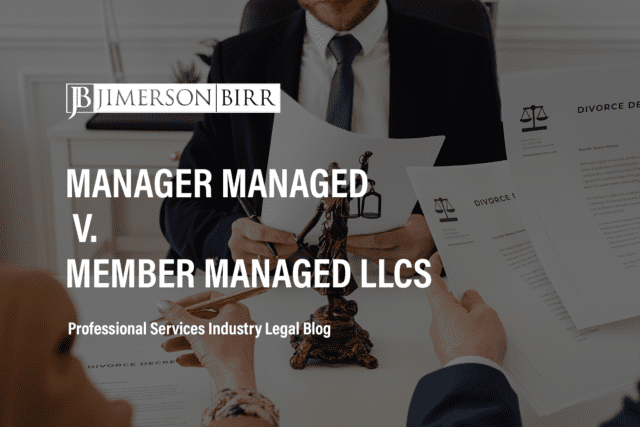What does corporate restructuring entail?
Corporate restructuring refers to reorganizing a company’s legal, operational, or financial structure to enhance its efficiency, competitiveness, or profitability. Corporate restructuring often involves changes to the company’s ownership, mergers and acquisitions, or alterations in the company’s capital structure.
Two examples of when corporate executives or boards of directors require counsel on corporate restructuring under Florida and federal law include:
- When a company faces financial distress and seeks to reorganize its debts and liabilities, requiring its leadership to navigate bankruptcy laws and negotiate with creditors to develop a reorganization plan.
- When a company wants to streamline its operations or organizational structure by divesting non-core assets or subsidiaries, merging with other companies, or forming strategic alliances.
Need help with a matter related to corporate restructuring? Schedule your consultation today with a top corporate and board of directors governance and operations attorney.
Which Florida and federal laws and regulations apply to corporate restructuring?
- The Florida Business Corporation Act (FBCA) governs the formation, operation, and dissolution of corporations in the state. In addition, it outlines the procedures for mergers, acquisitions, and other corporate transactions that can lead to restructuring.
- The Florida Revised Limited Liability Company Act (FRLLCA) covers the formation, operation, and dissolution of limited liability companies in Florida. Like the FBCA, the FRLLCA provides rules for mergers, acquisitions, and other transactions that may result in restructuring.
- The U.S. Bankruptcy Code offers guidance on corporate restructuring in the context of bankruptcy proceedings. Companies facing financial distress may choose to reorganize under Chapter 11 bankruptcy, which allows them to negotiate with creditors and develop a reorganization plan to regain financial stability.
What issues regarding corporate restructuring commonly lead to litigation?
The following issues are among the most common in litigation involving corporate restructuring:
- Breach of Fiduciary Duty: Directors and officers may face claims of breaching their fiduciary duties to shareholders by failing to act in the company’s best interests during the restructuring process.
- Fraudulent Conveyance: Creditors may allege that the company transferred assets intending to hinder, delay, or defraud them during the restructuring process.
- Preferential Treatment: Creditors may claim that certain parties received preferential treatment during the restructuring, resulting in an inequitable distribution of assets.
- Employment Disputes: Employees may file lawsuits over layoffs, severance packages, or alleged violations of employment laws that occur during restructuring.
- Misrepresentation: Shareholders may allege that the company or its directors and officers provided misleading information about the restructuring, resulting in financial harm.
- Disputes Over Contracts: Restructuring may involve terminating or modifying contracts, which can lead to litigation if one party disagrees with the changes.
What can minimize the risk of litigation over corporate restructuring?
Implementing the following strategies may help mitigate risk:
- Perform thorough due diligence: Conduct in-depth reviews of contracts, financial records, and other relevant documents to identify potential risks and liabilities before restructuring.
- Ensure fairness in asset distribution: Work with legal and financial advisors to develop a fair and equitable plan for the distribution of assets among creditors and other stakeholders.
- Document decision-making processes: Maintain detailed records of board discussions and decisions related to the restructuring to demonstrate that directors and officers fulfilled their fiduciary duties.
- Develop a comprehensive plan for employee transitions: Create a well-structured plan for layoffs, severance packages, and other employment-related issues to minimize the risk of employment disputes.
- Negotiate in good faith: Work proactively with creditors, employees, and other parties to resolve any disputes or disagreements arising during the restructuring process.
- Monitor ongoing compliance: Regularly review the company’s compliance with relevant laws and regulations to avoid potential legal issues in the future.
When a set of facts is appropriate to meet litigation requirements, there are many paths a claimant may take. We are value-based attorneys at Jimerson Birr, which means we look at each action with our clients from the point of view of costs and benefits while reducing liability. Then, based on our client’s objectives, we chart a path to seek appropriate remedies.
To determine whether your unique situation may necessitate litigation, please contact our office to set up your initial consultation.
What strategies allow organizations to implement corporate restructuring effectively?
Based on the circumstances, the following strategies may be impactful:
- Assessing the Company’s Financial Position: Review financial statements, contracts, and obligations to determine the extent of liabilities and identify areas for improvement.
- Engaging Experienced Legal Counsel: Retain counsel with expertise in corporate restructuring and Florida-specific regulations to guide the company and ensure compliance with all applicable laws and regulations.
- Developing a Comprehensive Restructuring Plan: Work with legal and financial advisors to create a plan outlining the proposed changes, including asset sales, debt restructuring, and operational modifications.
- Communicating with Stakeholders: Maintain open lines of communication with shareholders, employees, and creditors to address concerns and keep them informed throughout the restructuring process.
- Negotiating with Creditors: Collaborate with creditors to negotiate favorable terms for debt repayment and restructuring, potentially reducing the company’s overall debt burden.
- Implementing Operational Changes: Streamline operations, reduce expenses, and improve efficiency to increase profitability and stabilize the company’s financial position.
Frequently Asked Questions
- How long does the corporate restructuring process typically take?
The duration of a corporate restructuring process varies depending on the situation’s complexity and the extent of the changes required. It can range from several months to multiple years, depending on factors such as negotiations with creditors, legal proceedings, and implementation of operational changes.
- How does corporate restructuring affect employees?
Corporate restructuring can affect employees, including layoffs, job responsibilities changes, or compensation and benefits packages. Therefore, companies should communicate openly with employees throughout the process and develop a plan to minimize the negative impact on staff.
- Can a company continue to operate during a corporate restructuring?
Many companies continue to operate during the restructuring process, although some operational changes may be necessary. Corporate restructuring often aims to improve the company’s financial stability and long-term viability, which can ultimately benefit the business and its stakeholders.
Have more questions about governance or operations for your business?
Crucially, this overview of corporate restructuring does not begin to cover all the laws implicated by this issue or the factors that may compel the application of such laws. Every case is unique, and the laws can produce different outcomes depending on the individual circumstances.
Jimerson Birr attorneys guide our clients to help make informed decisions while ensuring their rights are respected and protected. Our lawyers are highly trained and experienced in the nuances of the law, so they can accurately interpret statutes and case law and holistically prepare individuals or companies for their legal endeavors. Through this intense personal investment and advocacy, our lawyers will help resolve the issue’s complicated legal problems efficiently and effectively.
Having a Jimerson Birr attorney on your side means securing a team of seasoned, multi-dimensional, cross-functional legal professionals. Whether it is a transaction, an operational issue, a regulatory challenge, or a contested legal predicament that may require court intervention, we remain a tireless advocate every step of the way. Being a value-added law firm means putting the client at the forefront of everything we do. We use our experience to help our clients navigate even the most complex problems and come out the other side triumphant.
If you want to understand your case, the merits of your claim or defense, potential monetary awards, or the amount of exposure you face, you should speak with a qualified Jimerson Birr lawyer. Our experienced team of attorneys is here to help. Call Jimerson Birr at (904) 389-0050 or use the contact form to schedule a consultation.
Here are some blogs written by JB attorneys that provide more information about corporate restructuring:

We live by our 7 Superior Service Commitments
- Conferring Client-Defined Value
- Efficient and Cost-Effective
- Accessibility
- Delivering an Experience While Delivering Results
- Meaningful and Enduring Partnership
- Exceptional Communication Based Upon Listening
- Accountability to Goals











